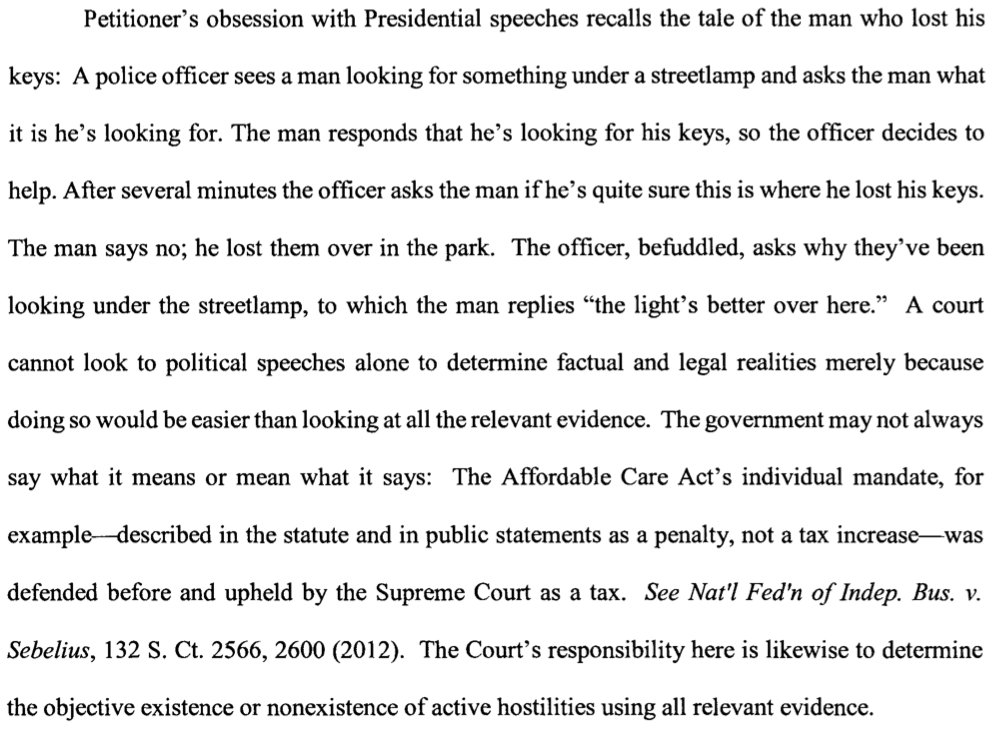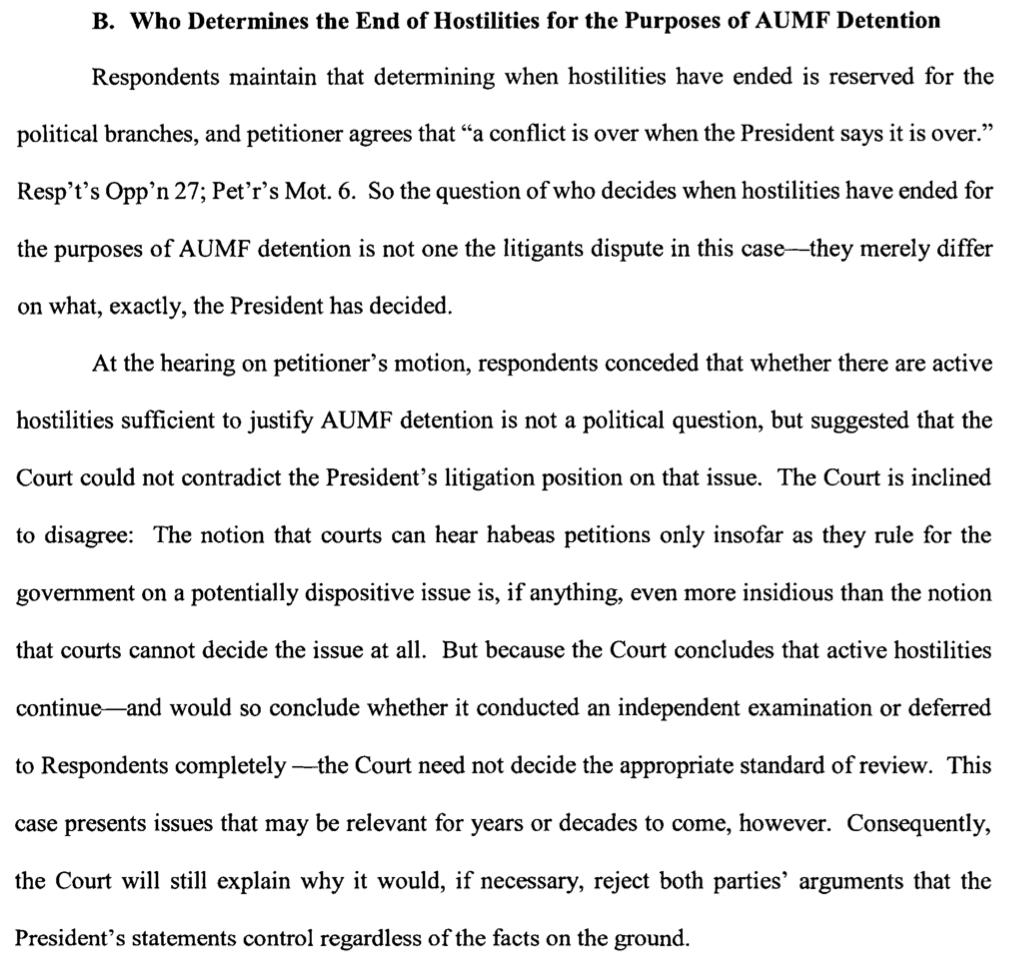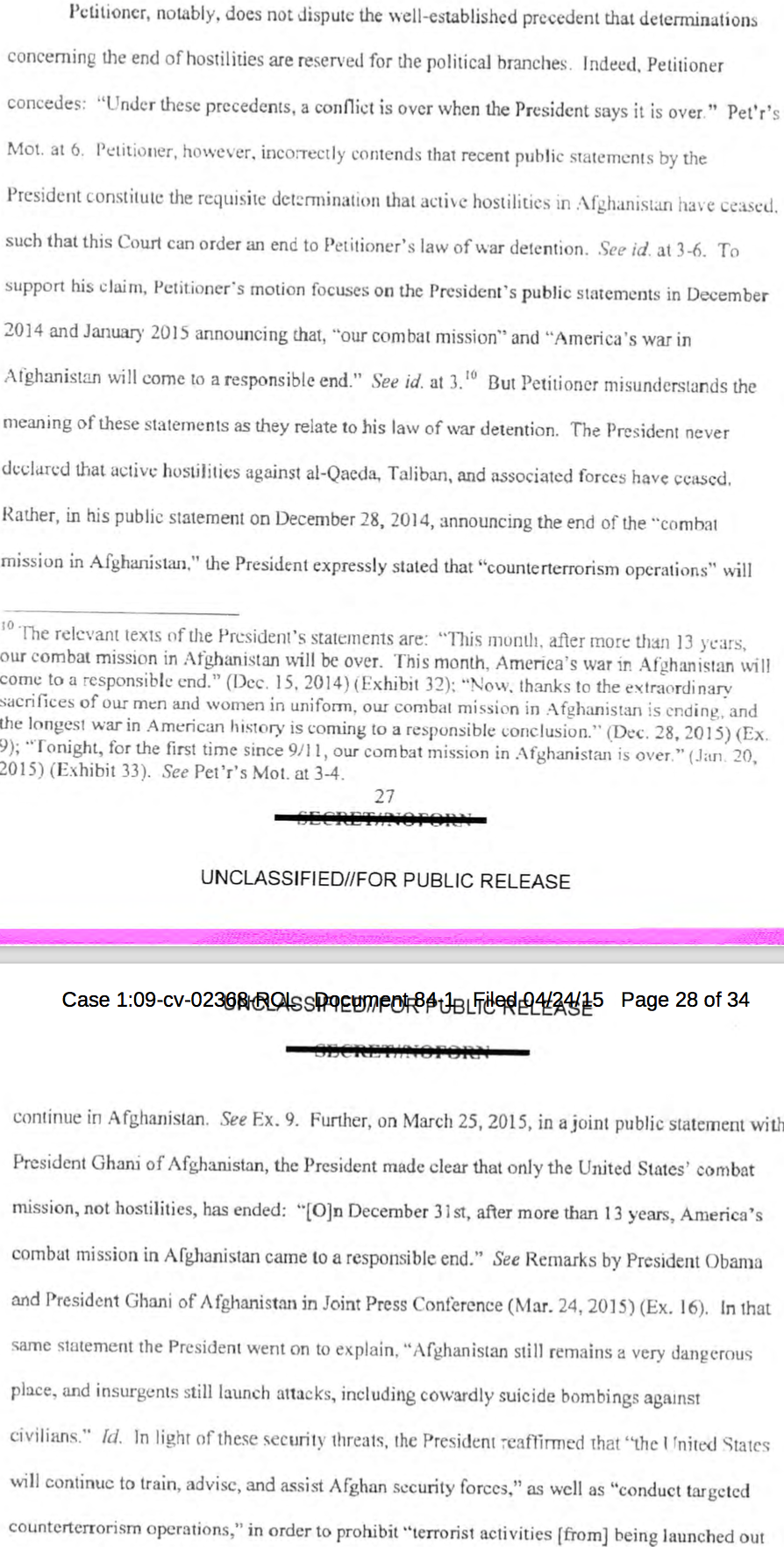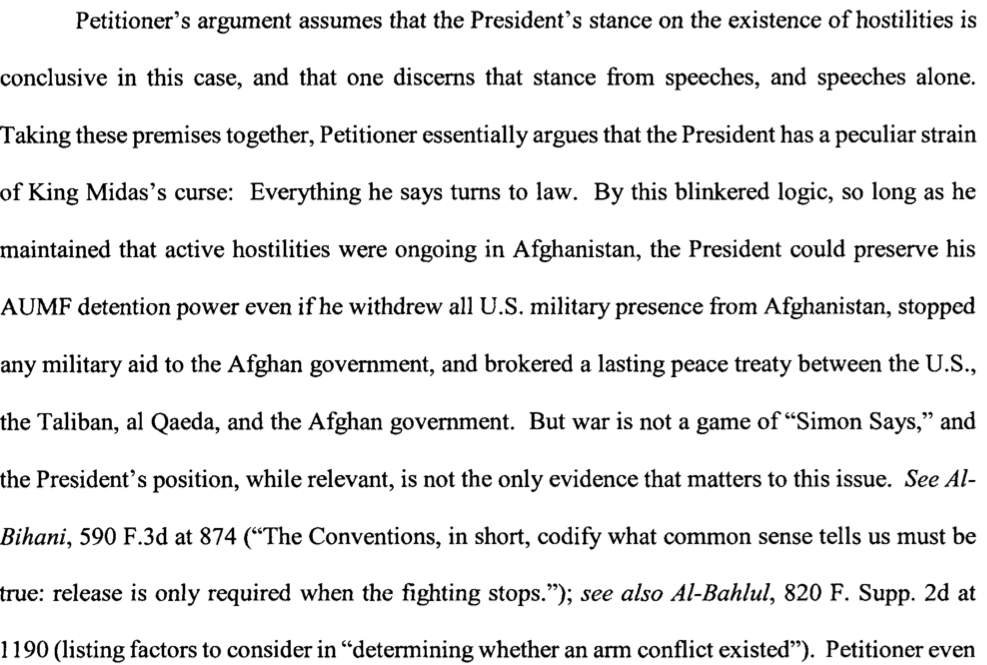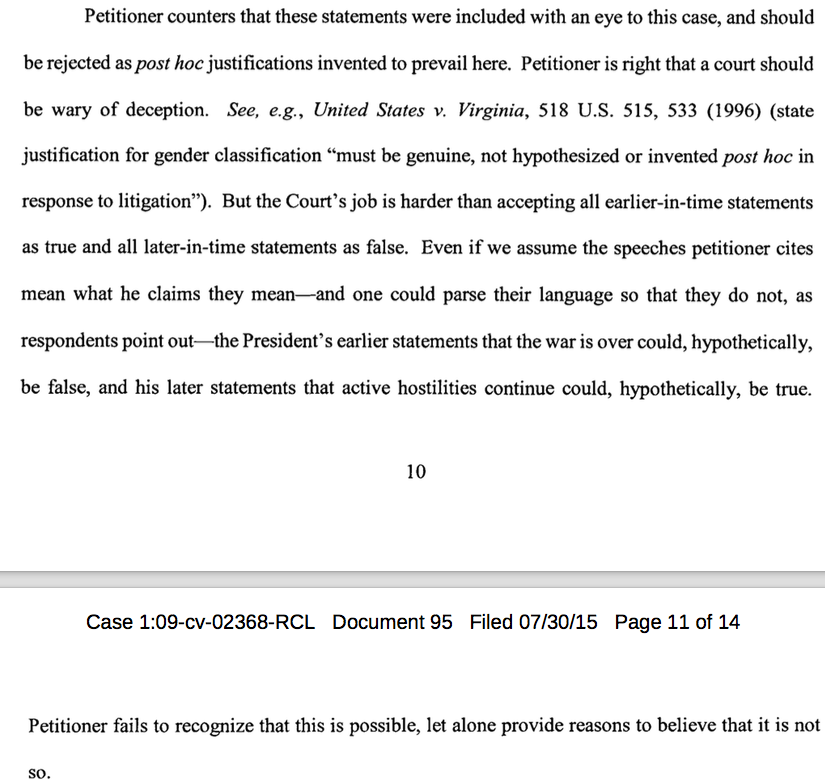New York Magazine has a lengthy profile of Laurence Tribe, whose challenge to provisions of the Clean Air Act has drastically altered his standing among fair-weather friends on the left. One of the more interesting aspects of the article concerned his rise and fall in the Obama Administration.
Upon the election of President Obama in 2008, Tribe anticipated an “influential” role in the new presidency:
Tribe remained in touch with Obama after he graduated and was one of his early political champions. He introduced his “inspiring” former student to the people of Iowa in a 2007 campaign ad. On the night of the 2008 election, Tribe emotionally embraced Obama in Grant Park. “As a nation,” he wrote in a blog post the next morning, “we have come of age.” In anticipation of an influential role in the new administration, Tribe prepared to move to Washington.
Tribe envisioned himself as some sort of Rule-of-Law Czar to handle Guantanamo and other big issues.
Tribe was offered assurances of a high-level job. In 2009, he wrote a private letter to Obama suggesting a “newly created DOJ position dealing with the rule of law.” He seemed like an ideal candidate to sort out dilemmas like Guantánamo. “I thought that for me to be giving broader advice on constitutional issues would make sense,” Tribe says.
This position ostensibly would have been outside the normal DOJ hierarchy–Attorney General, Assistant Attorney General, Deputy Assistant Attorney General, etc. The “czar” position would have hovered over a lot of turfs–among both political appointees and civil servants. He would have had direct access to the President himself.
But that didn’t happen, due to politics and the turf war.
When he got there, however, he discovered that Obama hadn’t changed politics. “It’s not just all the terrible things that people say behind each other’s backs,” Tribe says. “It’s how jealous people are of their turf, even when you are part of the same administration.” …
“But it was clear that was stepping on people’s toes.”
Instead, Tribe was stuck with an odd position that didn’t seem to have much authority:
He instead took a nebulous Justice Department job, “senior counselor for access to justice,” and did grassroots work like aiding homeowners facing foreclosure.
The New York Times reported in 2010:
In that position, created especially for him, Mr. Tribe has been asked to suggest ways to improve legal services for the poor, find alternatives to court-intensive litigation and strengthen the fairness and independence of domestic courts. But Mr. Tribe has a small staff, a limited budget, little concrete authority and a portfolio far less sweeping than the one he told friends he had hoped to take on in Washington.
He is also largely invisible. The Justice Department is not allowing him to give interviews, apparently in part because of nervousness in the administration that his unabashedly liberal views might draw criticism or that Mr. Tribe, described by friends as having a big intellect and a healthy ego, might stray from his assigned lane.
…
Mr. Obama himself made clear that he wanted to find a place for Mr. Tribe, according to interviews with administration officials who would speak only on the condition of anonymity. But for those putting together the staff, figuring out what to do with Mr. Tribe was difficult.
The Times in 2010 suggested that Tribe could not be put up for a position that requires Senate confirmation–an impossible vote after his opposition to Judge Bork’s nomination.
For that reason, officials decided that Mr. Tribe could not be given a position that would require Senate confirmation, like solicitor general, because Republicans would probably go to war against him, with decades of legal writings to mine for ammunition.
But then they hint what was really up–confirmed by the recent profile of Tribe.
There was also concern over how his presence might play out internally, several administration officials said. Some officials feared that he might be unmanageable, intruding into all manner of policy areas and able to call on Mr. Obama as a trump card.
“He has an ego,” said Charles Fried, a former solicitor general in the Reagan administration and a fellow Harvard law professor. “He’s entitled to it. He’s earned it.”
Even with this low position, some expected the close relationship would help–and it was this close relationship that doomed Tribe’s prospects.
Still, several of his Harvard colleagues noted that he may wield unofficial influence because of relationships with former students and protégés throughout the government — not least with Mr. Obama.
“When the president of the United States respects your views, that conveys more authority than a title,” said Alan M. Dershowitz, a Harvard law professor.
Back to 2015, the New York Magazine article reports that members of the Administration resented Tribe’s close relationship with the President.
Still, some colleagues remained resentful of his relationship with the president. Obama occasionally summoned him to the Oval Office to talk about abstract issues of law, but even those rare interactions created friction.
Perhaps the most striking event was when Rahm Emanuel–who earned his nickname of “The Godfather“–gave Tribe a talking-to.
“Rahm Emanuel pulled me aside at a party at the W Hotel,” Tribe recalls. “He said, ‘I heard you went to the Big Guy behind my back.’ ”
The low point of his stint in the presidency came to a head when Ed Whelan posted on his blog a letter Tribe wrote that was very critical of then-Judge Sotomayor. Tribe urged the President to nominate his close confidante Elena Kagan. This letter further worsened Tribe’s standing in the Administration.
Kagan and Sotomayor were both on the Court by the time the letter emerged in late 2010, so it only served to damage its author. Citing his health, Tribe soon resigned.
Curiously, the 2010 Times article offers these prescient comments:
Mr. Tribe’s friends said that if he felt he could not do something meaningful in Washington, he would quit.
“If Larry Tribe is in any way viewed as — or is in fact — only window dressing,” Mr. Ogletree said, “then I have no doubt that he would resign from that position and return to Cambridge in a New York minute.”
The New York Magazine article quotes Tom Goldstein as suggesting that someone in the White House leaked it.
“I assume someone in the administration leaked it to injure Larry,” Tom Goldstein says.
Ed Whelan–who I doubt is buddy-buddy with the Obama White House–suggests Goldstein’s speculation is absurd.
I’ve already said all that I’m going to say on who my source was. But I can’t say that it strikes me as reasonable to assume that someone in the Obama administration would choose me to leak to.
Goldstein also said in 2010 that Tribe was happy with his position at DOJ:
And Thomas C. Goldstein, a prominent Supreme Court lawyer who has worked with Mr. Tribe for more than a decade, said Mr. Tribe had described himself as happy and busy with the job, which he assumed in March.
Not so much.
In any event, Tribe closes by noting that he hasn’t spoken to the President since 2011 or so–not at all during his second term in office.
Tribe told me he hasn’t spoken to the president in almost four years and hasn’t had any direct communication with the White House about the EPA case. “It’s all mean anonymous quotes,” he says. But he would very much like to know how Obama regards him today. “Do you really think that Barack or people close to him are pissed at me?” Tribe recalls asking his former research assistant Ron Klain, who was Vice-President Biden’s chief of staff. “He said, ‘No, I think they realize that your credibility when you’re on their side is enhanced by the fact that you’re not always on their side.’ ”
“He’s assuming a largeness of spirit,” he says, “that may or may not be there.”
What a fascinating insight into how administration politics work.
